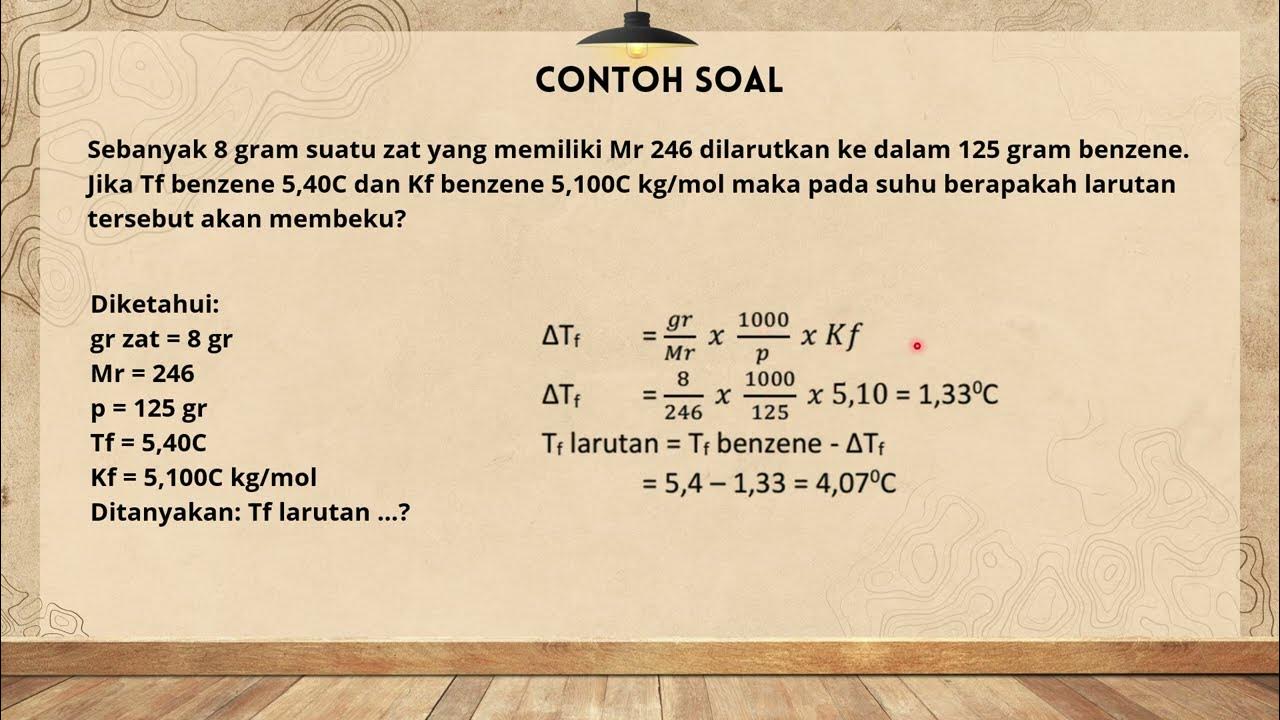WHY DOES SALT MAKE ICE COLDER? LEARN THIS AMAZING PHENOMINA WITH THE HELP OF A SIMPLE EXPERIMENT.
Summary
TLDRIn this educational video, the host explores whether adding salt to ice lowers its temperature. Through a simple experiment, two glasses of ice are compared: one with salt and one without. Initially, both glasses register 0.1°C. After adding salt and stirring, the temperature of the salted ice drops significantly to -12°C. The science behind this phenomenon is explained: salt disrupts the freezing process by interfering with water's ability to form a crystalline structure, thus requiring a colder temperature for freezing. The video concludes with a reminder to like and subscribe for more science experiments.
Takeaways
- 🧪 The video explores whether adding salt to ice lowers its temperature through a simple experiment.
- 🥶 Initially, both glasses of ice have the same temperature of 0.1 degrees Celsius.
- 🧂 Salt is added to one glass of ice to observe its effect on the freezing point.
- 🔬 The science behind the experiment is that salt disrupts the freezing process of water by interfering with the formation of a crystalline structure.
- ⏱️ After five minutes, the temperature of the ice with salt has significantly decreased, while the control remains at 0.1 degrees Celsius.
- ❄️ The temperature of the ice with salt drops to minus 12 degrees Celsius, demonstrating the effect of salt on the freezing point.
- 🌡️ The addition of salt to ice results in a lower temperature at which the ice freezes, due to the hindrance of water's ability to organize into a solid state.
- 🧶 Dissolving salt in water leads to the formation of Na+ and Cl- ions, which disrupt the water's freezing process.
- 🧊 The presence of salt ions in water increases the difficulty for water molecules to freeze, thus lowering the freezing temperature.
- 🧂 Other types of salts can dissolve into more particles and have an even greater impact on lowering the freezing point of water.
- 📺 The video concludes by encouraging viewers to like and subscribe for more educational content.
Q & A
What is the main focus of the video?
-The main focus of the video is to determine whether adding salt to ice lowers its temperature.
How does the experiment begin?
-The experiment begins with two identical glasses containing ice cubes, ensuring both have the same amount of ice.
What is the initial temperature of the glasses of ice?
-The initial temperature of both glasses of ice is 0.1 degrees Celsius.
What is added to one of the glasses to conduct the experiment?
-Salt is added to one of the glasses to observe its effect on the temperature of the ice.
What is the scientific explanation behind the addition of salt to ice?
-When salt is added to ice, it lowers the freezing point of water, making it more difficult for water to freeze and causing the ice to remain in a liquid state at a lower temperature.
How long after adding salt is the temperature of the ice checked?
-The temperature of the ice with salt is checked after more than five minutes.
What is the observed change in temperature after adding salt?
-After adding salt, the temperature of the ice decreases drastically to minus 12 degrees Celsius.
How does salt affect the freezing process of water?
-When salt dissolves in water, it dissociates into ions that interfere with the formation of a crystalline structure required for freezing, thus lowering the temperature needed for water to freeze.
What happens when salt dissolves in water?
-When salt dissolves in water, it dissociates into its ionic form, such as Na+ and Cl- ions, which disrupt the organization of water molecules into a crystalline structure.
What is the role of salt ions in the freezing process?
-Salt ions get in between water molecules, making it more difficult for them to organize into a crystalline structure, thus lowering the freezing point.
Can other types of salts have a more significant effect on the freezing point?
-Yes, some other salts can dissolve into more particles than table salt, which can lower the freezing point even more.
What is the conclusion of the experiment?
-The conclusion of the experiment is that adding salt to ice does indeed lower its temperature, as evidenced by the drastic decrease in temperature in the glass with salt.
Outlines

هذا القسم متوفر فقط للمشتركين. يرجى الترقية للوصول إلى هذه الميزة.
قم بالترقية الآنMindmap

هذا القسم متوفر فقط للمشتركين. يرجى الترقية للوصول إلى هذه الميزة.
قم بالترقية الآنKeywords

هذا القسم متوفر فقط للمشتركين. يرجى الترقية للوصول إلى هذه الميزة.
قم بالترقية الآنHighlights

هذا القسم متوفر فقط للمشتركين. يرجى الترقية للوصول إلى هذه الميزة.
قم بالترقية الآنTranscripts

هذا القسم متوفر فقط للمشتركين. يرجى الترقية للوصول إلى هذه الميزة.
قم بالترقية الآنتصفح المزيد من مقاطع الفيديو ذات الصلة
5.0 / 5 (0 votes)






